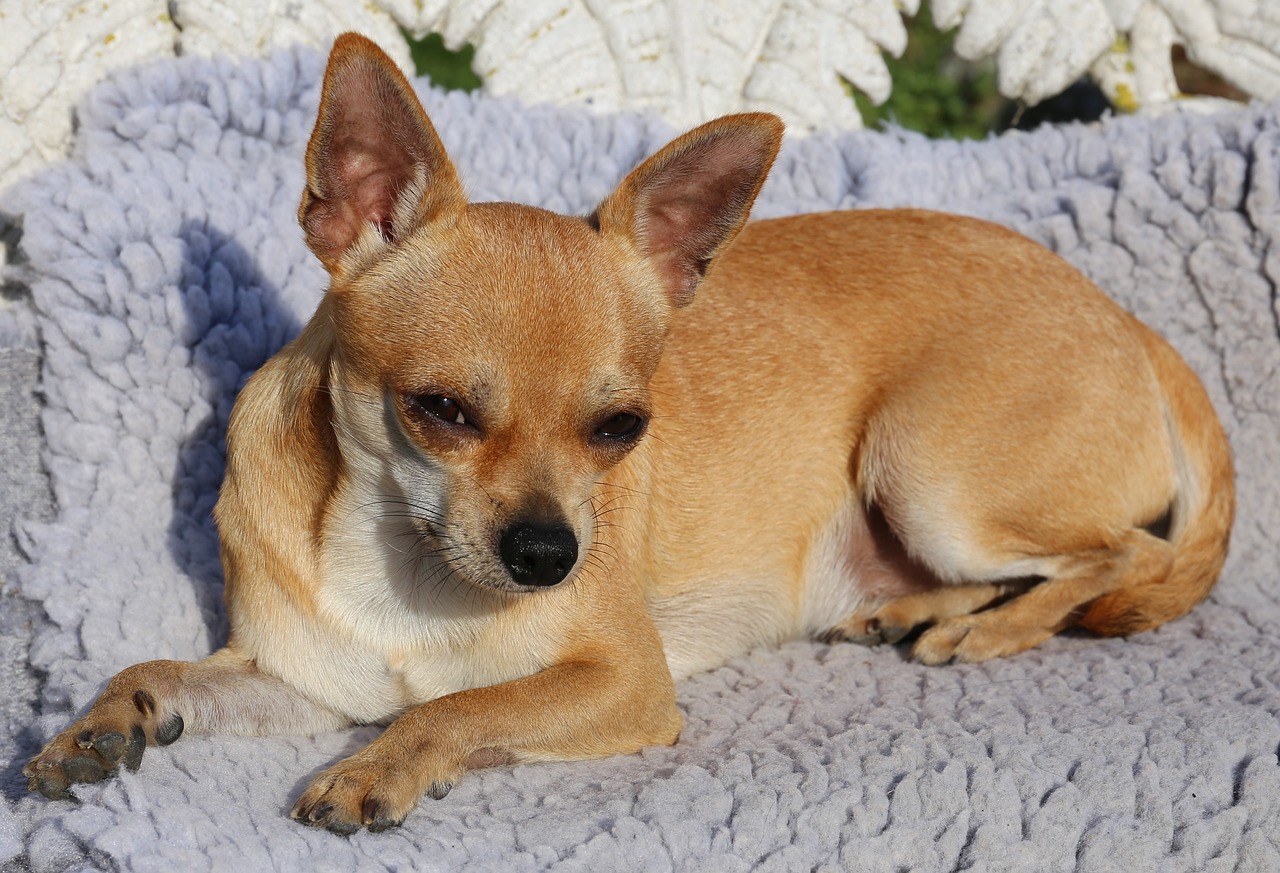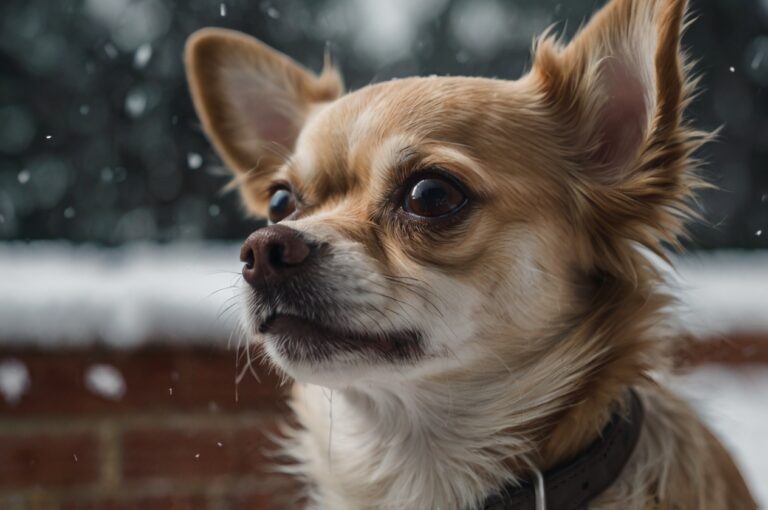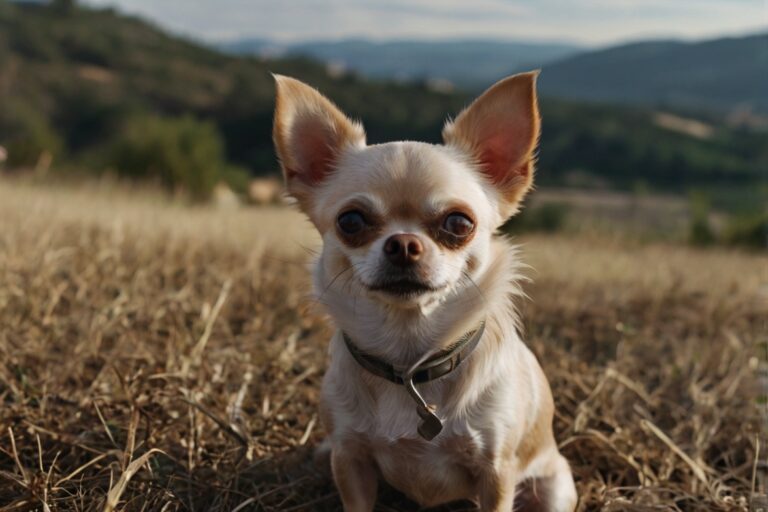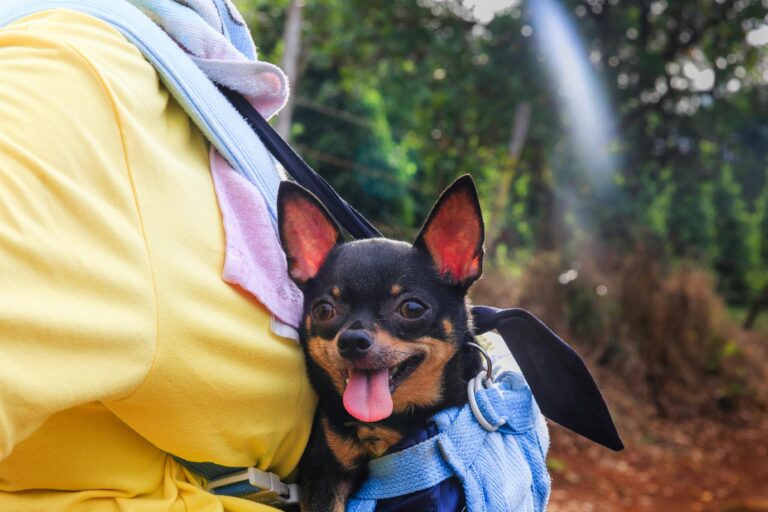Chihuahua Intelligence: How Smart is the World’s Tiniest Dog?

Chihuahuas may be small, but their intelligence and wit are often underestimated. Known for their big personalities and strong loyalty to their owners, Chihuahuas possess a level of intelligence that’s a blend of instinctive, adaptive, and emotional. While they might not top every dog intelligence ranking, their unique problem-solving abilities, combined with their emotional sensitivity, make them highly attuned and clever companions.
In this guide, we’ll explore how Chihuahuas’ intelligence is measured, the challenges and rewards of training them, and how their keen emotional awareness plays a role in their overall smarts.
1. Understanding Chihuahua Intelligence
Intelligence in dogs is often categorized into three main types: instinctive, adaptive, and working intelligence. Chihuahuas possess a mix of these traits, which contribute to their distinctive cleverness. Despite their small size, Chihuahuas can display remarkable problem-solving skills, emotional intelligence, and loyalty.
1.1 Measuring Canine Intelligence
When it comes to measuring canine intelligence, experts usually break it down into three key categories:
- Instinctive Intelligence: This refers to a dog’s natural ability to perform tasks they were bred for, such as herding, guarding, or hunting. For Chihuahuas, their instinctive intelligence lies in their ability to be alert watchdogs and companions.
- Adaptive Intelligence: Adaptive intelligence is how well a dog can learn from their environment and solve problems on their own. Chihuahuas are known for their ability to adapt quickly to changes and pick up on patterns in their surroundings.
- Working and Obedience Intelligence: This type of intelligence measures a dog’s ability to learn commands and follow instructions, which can sometimes be more challenging for independent breeds like Chihuahuas.
Although Chihuahuas may not rank among the top breeds for obedience intelligence, their adaptive intelligence and ability to read emotional cues from their owners make them smart in different ways. Their independence may sometimes be mistaken for stubbornness, but in reality, it’s a reflection of their intelligence and desire to think for themselves.
| Intelligence Type | Description | Chihuahua’s Strength |
|---|---|---|
| Instinctive Intelligence | A dog’s ability to perform tasks they were bred for (e.g., guarding, herding). | Excellent at being alert companions. |
| Adaptive Intelligence | Problem-solving skills and learning from their environment. | High problem-solving abilities. |
| Working & Obedience Intelligence | Ability to follow commands and learn tasks. | Moderate, can be stubborn at times. |
1.2 The Instinctive Intelligence of Chihuahuas
Chihuahuas were bred primarily as companion dogs, and their instinctive intelligence revolves around this role. They are naturally alert and make excellent watchdogs, despite their small size. Chihuahuas are quick to notice unfamiliar sounds or movements, often barking to alert their owners of any potential intruders. This natural vigilance is a testament to their strong instinctive intelligence.
In addition to being watchdogs, Chihuahuas are also highly attuned to their environment. They can quickly adapt to changes around them, which is a hallmark of both their instinctive and adaptive intelligence. For example, many Chihuahuas will quickly learn when it’s time for meals, walks, or even recognize patterns in their owner’s behavior, like getting ready to leave the house.
While some may dismiss their small size as a limitation, Chihuahuas compensate with a sharpness and awareness that makes them excellent companions for those looking for an alert, emotionally sensitive dog.
2. Trainability: Can You Teach a Chihuahua New Tricks?

Training a Chihuahua can be both rewarding and challenging. While their intelligence allows them to quickly understand commands, their independent and sometimes stubborn nature can make them seem difficult to train. However, with the right approach and positive reinforcement, Chihuahuas can learn a wide range of tricks and commands.
2.1 Obedience Training and Challenges
Chihuahuas, like many small dogs, have a reputation for being difficult to train. This is primarily due to their independent streak and strong-willed nature. While they are certainly capable of learning, Chihuahuas may not always see the point in following commands, especially if the task doesn’t align with their own interests.
This doesn’t mean that Chihuahuas are not intelligent—in fact, they are quite smart. However, their intelligence often manifests in ways that can make training a bit more challenging. They can be headstrong and prefer to do things their own way, which requires patience and consistency from their owners. It’s crucial to use positive reinforcement, such as treats or praise, to encourage good behavior and keep training sessions short and fun.
Chihuahuas can learn basic commands like “sit,” “stay,” and “come,” but it’s important to avoid harsh training methods. Being a small breed, Chihuahuas may respond negatively to punishment, leading to anxiety or behavioral issues. Instead, focus on rewards-based training to keep them motivated and engaged.
2.2 Socialization and Behavioral Training
Training a Chihuahua goes beyond simple commands—it’s essential to socialize them from a young age. Chihuahuas can be prone to territorial behavior, barking, or becoming overprotective of their owners if not properly socialized. Introducing them to new environments, people, and other dogs early on helps prevent these behaviors.
Behavioral training is also crucial for Chihuahuas, particularly when it comes to reducing barking or aggressive tendencies. Teaching your Chihuahua to be calm and relaxed in various situations is an important aspect of training, especially for a breed known for being protective.
2.3 Learning New Tricks and Commands
Despite their independent streak, Chihuahuas are capable of learning a wide variety of tricks and commands when approached with patience and positive reinforcement. While they might not be as eager to please as other breeds, their intelligence allows them to pick up on routines and instructions quickly—especially when the tasks are fun and engaging.
To successfully teach new tricks to a Chihuahua, it’s important to keep training sessions short and entertaining. Chihuahuas can easily lose interest if the training becomes repetitive or boring, so aim for 5-10 minute sessions that keep them focused and motivated. The use of positive reinforcement, such as small treats or enthusiastic praise, will keep your Chihuahua eager to learn.
Some tricks that Chihuahuas can easily learn include:
- Sit and Stay: Basic obedience commands that Chihuahuas can grasp with consistency.
- Spin and Twirl: Fun, easy-to-learn tricks that involve movement and provide mental stimulation.
- Fetch: Though often considered a game for larger dogs, Chihuahuas can excel at retrieving small toys.
It’s essential to remember that Chihuahuas respond best to encouragement, not force. Harsh training methods or punishment can lead to anxiety or resistance, so focus on building trust and rewarding positive behaviors. With time, your Chihuahua can develop an impressive repertoire of tricks, showcasing their hidden intelligence.
3. Emotional Intelligence and Loyalty

One of the most remarkable aspects of Chihuahua intelligence is their emotional intelligence. Chihuahuas are incredibly attuned to their owner’s feelings, often reacting to emotional cues in ways that demonstrate their deep understanding. This emotional awareness, combined with their loyal nature, makes Chihuahuas highly intuitive dogs.
3.1 Strong Bonds with Owners
Chihuahuas are known for forming strong emotional bonds with their owners, which is a clear indication of their emotional intelligence. These tiny dogs thrive on close relationships and often become very attached to one or two people in their household. They can quickly sense when their owners are feeling sad, stressed, or happy, and will adjust their behavior accordingly.
This close bond also manifests in how Chihuahuas often seek physical proximity to their owners. Whether it’s sitting on their lap, snuggling in bed, or following them around the house, Chihuahuas have a strong desire to be close to the people they trust and love. This constant need for companionship is a sign of their loyalty and emotional depth, making them excellent companions for those who value closeness in their pets.
3.2 Sensitivity to Surroundings and People
Chihuahuas are not only in tune with their owners’ emotions, but they are also highly sensitive to changes in their environment. They quickly pick up on atmospheric shifts, such as the tension in a room or the arrival of new people. This heightened sensitivity is part of what makes them such effective watchdogs, as they can detect unfamiliar sounds, movements, or energy changes in their surroundings.
For example, if a Chihuahua notices someone they don’t recognize approaching their home, they may bark or show protective behavior. This is not just a territorial instinct, but also a demonstration of their ability to assess potential threats. Their sharp awareness and reaction to subtle changes reflect their emotional intelligence and their keen sense of observation.
3.3 Loyalty and Protective Instincts
Chihuahuas are incredibly loyal to their owners, often going to great lengths to protect them, despite their small size. This loyalty stems from their emotional intelligence, which allows them to form deep attachments and feel a sense of responsibility toward their family. While some may view their protectiveness as aggression, it’s more a reflection of their desire to keep their loved ones safe.
This strong protective instinct often leads Chihuahuas to bark at strangers or other animals they perceive as threats. However, with proper socialization and training, this protectiveness can be managed without sacrificing the loyalty that makes Chihuahuas such wonderful companions.
Their loyalty, combined with their intelligence, makes them fiercely devoted pets who will always stay close to their owners, providing both physical and emotional comfort.
4. Stimulating a Chihuahua’s Intelligence

Chihuahuas thrive on mental stimulation, and keeping their minds active is just as important as keeping them physically fit. Given their intelligence, it’s essential to engage them in activities that challenge their brains, prevent boredom, and provide enrichment. Whether through puzzle toys, training, or playtime, mental stimulation helps keep Chihuahuas sharp, happy, and well-behaved.
4.1 Mental Stimulation Through Puzzle Toys
Puzzle toys are a fantastic way to tap into your Chihuahua’s problem-solving skills and keep them entertained. These toys, which often involve hiding treats or kibble inside, encourage your Chihuahua to use their brain to figure out how to access the reward. Puzzle toys help prevent boredom, which can lead to destructive behaviors like chewing or excessive barking.
Chihuahuas are particularly well-suited for interactive toys due to their curious and alert nature. By regularly introducing new toys or rotating through different puzzles, you can provide your dog with the mental stimulation they need to stay sharp.
4.2 Engaging in Daily Training and Problem-Solving Activities
Daily training sessions are a great way to stimulate your Chihuahua’s mind. Even after they’ve mastered basic commands like “sit” or “stay,” you can continue to challenge them with more advanced tricks and tasks. Chihuahuas excel at learning new commands when positive reinforcement is used, and regular training sessions help them stay mentally engaged.
Beyond formal training, you can incorporate problem-solving activities into your Chihuahua’s routine. For example, playing hide and seek—where you hide treats or toys around the house and encourage your dog to find them—taps into their natural foraging instincts and provides mental enrichment.
4.3 Avoiding Boredom: The Role of Routine and Enrichment
Chihuahuas can become bored easily, especially if left alone for long periods without anything to occupy their time. Boredom in intelligent dogs often leads to undesirable behaviors such as excessive barking, chewing, or digging. To prevent this, it’s important to provide regular mental enrichment and maintain a routine that includes training, play, and interaction.
A simple but effective way to avoid boredom is to mix up their routine. Introduce new activities, rotate toys, or vary their walking route to keep things interesting. Engaging your Chihuahua in tasks that challenge their mind not only improves their behavior but also strengthens the bond between you and your pet.






